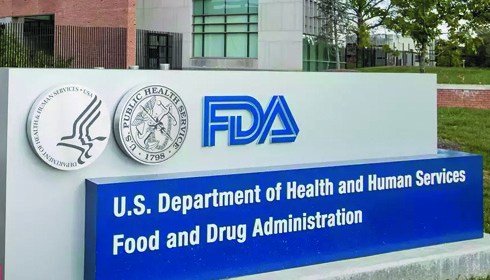
FDA Approves Ryoncil: A Breakthrough in Cell-Based Therapy for Pediatric SR-aGVHD
Recently, the U.S. Food and Drug Administration (FDA) approved Ryoncil (remestemcel-L-rknd), marking a significant milestone as the first mesenchymal stromal cell (MSC) therapy approved in the United States. This new and important treatment is for SR-aGVHD in children two months and older, and it works even when steroids don't. It fills a big need in a touchy group of patients.
The treatment of SR-aGVHD has significantly changed with the introduction of the drug ryoncil. This is a serious and often fatal side effect of allogeneic haematopoietic stem cell transplantation (allo-HSCT). People who need allo-HSCT get haematopoietic stem cells from healthy donors to make new blood cells. Usually, people undergo this procedure to treat blood cancers, blood disorders, or immune system disorders. However, this procedure carries the potential risk of graft-versus-host disease, where the donor's immune cells may attack the recipient's tissues.
Nicole Verdun, M.D., who is in charge of the Office of Therapeutic Products in the FDA's Centre for Biologics Evaluation and Research (CBER), said, "steroid-refractory acute graft-versus-host disease can really hurt your health, affecting many organs, making life less enjoyable, and even increasing your risk of death." “The FDA is committed to addressing the critical needs of those suffering from serious and life-threatening conditions, and today’s approval marks a significant advancement in that mission.”
Ryoncil utilises mesenchymal stem cells obtained from the bone marrow of healthy adult donors. These cells have special regenerative abilities, allowing them to transform into different cell types and adjust immune responses. When given through an IV, Ryoncil tries to fix the immune system problems that come with SR-aGVHD, giving hope to people who don't get better with corticosteroids.
"Today’s decision represents a significant step forward in the application of innovative cell-based therapies aimed at treating life-threatening diseases that have severe effects on patients, including children," stated Peter Marks, M.D., Ph.D., director of CBER. “The approval of this first mesenchymal stromal cell therapy highlights the FDA’s dedication to fostering the creation of safe and effective products that have the potential to enhance the quality of life for patients experiencing symptoms that do not respond to other treatments.”
The FDA approved the treatment based on data from a multicenter, single-arm study that included 54 paediatric participants with SR-AGVHD. Over the course of four weeks, patients underwent eight infusions of Ryoncil. Researchers assessed responses by utilising the International Blood and Marrow Transplantation Registry's Severity Index Criteria (IBMTR), focussing on organ involvement and the severity of the disease.
The main goal was to focus on response rates 28 days after starting treatment. The results showed that 30% of participants achieved a complete response, whereas 41% exhibited a partial response. Importantly, individuals with mixed or partial responses could receive four more weekly infusions, highlighting the flexibility of the therapy.
Although Ryoncil shows promise, it also carries certain risks. During the trials, some adverse reactions were infections, fever, haemorrhage, oedema, abdominal pain, and hypertension. Serious complications like hypersensitivity reactions, infusion-related events, and the possibility of ectopic tissue formation require careful monitoring during administration. The FDA recommends using corticosteroids and antihistamines as premedication to reduce the risks of hypersensitivity.
It is not recommended that people who are allergic to dimethyl sulfoxide or porcine and bovine proteins, which are important parts of the therapy, use it. We encourage doctors to remain vigilant for signs of infusion reactions, including shortness of breath, low blood pressure, fever, or hypoxia.
The approval of Ryoncil marks a significant achievement for Mesoblast, Inc., the biopharmaceutical company that developed it. The application has been granted orphan drug, fast track, and priority review designations by the FDA, highlighting its potential to tackle a rare and serious condition. These regulatory approvals speed up the process of making new therapies accessible to patients who have few treatment choices.
The market impact is anticipated to be significant, as SR-AGVHD addresses a critical unmet need in paediatric haematology and oncology. Ryoncil's ability to produce clinically significant results could change how allo-HSCT complications are treated, setting a standard for future MSC therapies.
Ryoncil’s approval indicates a growing acceptance of cell-based therapies within mainstream medicine. By tackling intricate, immune-related conditions, MSCs show potential across a range of diseases beyond SR-aGVHD. The FDA's decision provides opportunities for further research and development, thereby promoting investment in the field of regenerative medicine.
Peter Marks wisely stated, "This approval shows the FDA’s dedication to fostering the creation of safe and effective products that may enhance the quality of life for patients experiencing symptoms that do not respond to other treatments."